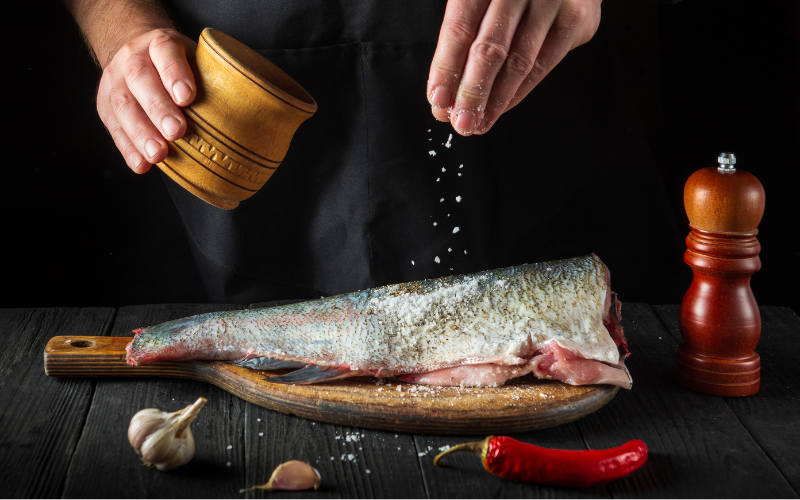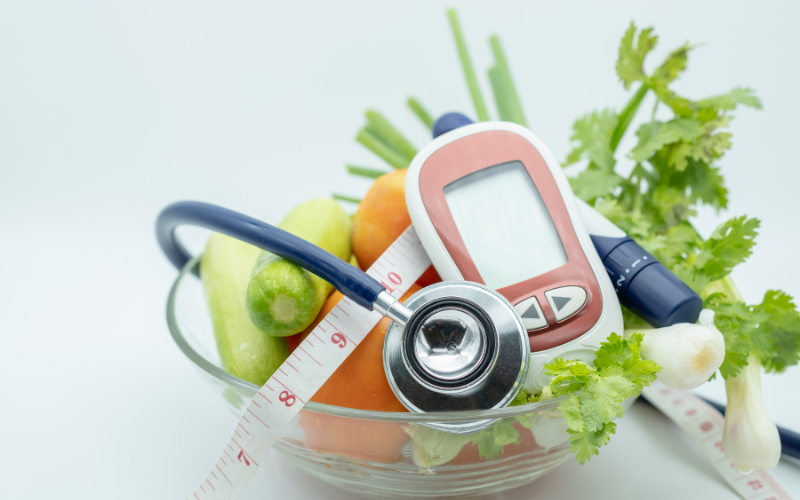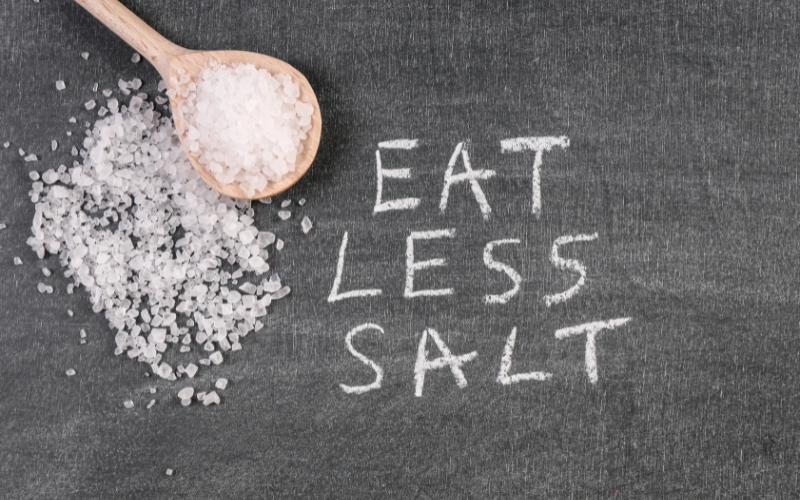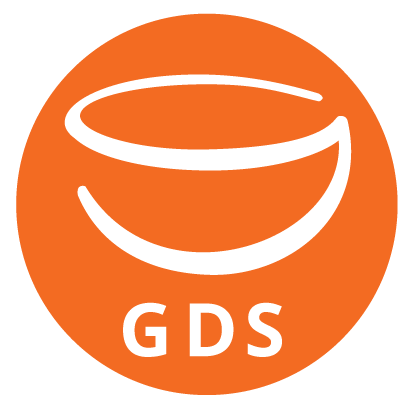Why we switched to healthier Heart Salt in our meals

Australia is in the grips of a heart health crisis
We know from the data that coronary heart disease is the leading cause of death in Australia. We also know that in combination, coronary heart disease, hypertension (high blood pressure) and stroke contribute to 44% of all deaths. When it comes to our hearts, and the vessels and arteries that feed both our heart and our brain, Australia is in somewhat of a crisis.
High blood pressure is central to the problem. When the force of blood pushing against the artery walls is consistently too high, our hearts work harder causing damage to our arteries over time. Alarmingly, high blood pressure impacts one in three Australian adults.
The issue with salt
Standard table salt is sodium chloride. Consumption of sodium in salt raises our blood pressure and increases our risk of cardiovascular complications. It does this by encouraging fluid retention, increasing our blood volume and raising our blood pressure.
Unfortunately, Australians are consuming nearly double the recommended intake of sodium. Most of it is coming in the form of processed and packaged foods. The biggest culprits are bread, breakfast cereals, salty snack foods, cured meats, sauces, dehydrated soups and pastas, ready-meals and fast foods such as pizza, burgers and hot chips.
The World Health Organization has declared that reducing sodium intake is one of the most cost-effective measures to improve health and reduce the burden of non-communicable diseases.
Thankfully there is a simple solution: potassium-enriched salt and Dietlicious has already made the switch!
Making meals healthier for our hearts by reducing sodium content
We were already on a mission to make our customers healthier by providing 100% healthy, all natural meals made only from wholefoods and containing no additives, preservatives or artificial ingredients. To create flavour in our meals, we’ve always used a combination of culinary flair alongside a mixture of herbs and spices, including salt.
Now, Dietlicious has gone one step further in the fight against cardiovascular disease. We have become the first ready-meal provider to make the switch away from regular salt to one that meets the brief for a low salt low sodium diet. In our kitchens, we now almost exclusively use potassium-enriched Heart Salt, expanding our range of low salt meals.
What is Heart Salt + what are the health benefits?
Heart Salt is an Australian brand of potassium-enriched salt that contains 56% less sodium than regular salt. It’s made by replacing some of the sodium chloride in salt with potassium chloride, both naturally occurring minerals. Australians don’t eat enough potassium (usually found in fruits and vegetables) and this in itself increases our risk of cardiovascular disease. Therefore, increasing potassium intake via potassium-enriched salt at the same time as reducing sodium, is a win:win for our hearts!
The benefits don’t end there. Heart Salt is all natural and tastes great, enabling it to be substituted for regular salt without detection.
Scientific studies demonstrate the effectiveness of potassium-enriched salt such as Heart Salt in reducing the risk of cardiovascular events, stroke and premature death. That’s why organisations like The George Institute for Global Health advocate switching to these potassium-enriched salts as a population-wide recommendation. "If the world switched from using regular salt to potassium-enriched salt, millions of strokes and heart attacks could be prevented every year at very low cost," says Dr Kathy Trieu, program lead at The George Institute for Global Health.
Watch the following explanation video from The George Institute for Global Health for a quick overview of potassium-enriched salt and its benefits. You can find more information about potassium-enriched salt and why we should switch on The George Institute #switchthesalt campaign page.
But what about the taste of Heart Salt?
We’ve always said that healthy eating doesn’t have to mean bland, boring food. We know the secret to our success is beautifully full flavoured, appetising meals that are low in calories and high on nutrition. It’s what gets results for our customers. Thankfully nothing’s changed. Our meals are still the best tasting healthy meals around – now they are even healthier for your heart, with many qualifying as low sodium diet foods.
Before we made the change to potassium-enriched salt, we thoroughly tested our recipes and surveyed our customers. The feedback on our low salt meals has been resoundingly positive.
97% of surveyed customers gave a satisfaction rating of
4 or 5 (out of 5) for our Heart Salt meals.
Here are a few comments from customers who sampled our low sodium meals made with Heart Salt and completed our survey:
“All as delicious as they have ever been, will keep ordering these”
“It tasted equally as good as the original”
“As a retired doctor, all I can say is "Good on you!!"”
“I think it's a great initiative. We should all eat less sodium without giving up the pleasure of great tasting food.”
“So impressed with your initiative for reducing salt, the meals are so very tasty that additional salt is not necessary”
Same great taste + lower sodium content = happy and healthier customers!
Show me the low salt meals!
Whether you have a condition that puts you at risk of heart disease or not, chances are you’ll benefit from eating low sodium diet foods.
The recommended sodium intake for adults is less than 2000mg per day. All meals listed on our low salt meals page contain under 600mg of sodium, ensuring you’ll stay well below the daily allowance if you make other sensible choices throughout your day. So, what are you waiting for?
Check out our low sodium meals here
Learn more about the benefits of potassium-enriched salt + low sodium diets
If you’re wanting more information about heart health and low salt low sodium diet foods, these articles should help.
Every adult should consider switch to potassium-enriched salt
This salt alternative could help reduce blood pressure
New study finds salt substitutes reduce stroke risk too! Listen to ABC audio here (3 mins)
Note: If you suffer from serious kidney disease, you may need to avoid all types of salt (including potassium-enriched salt) and foods high in potassium. Check with your doctor or dietitian for specific advice.






